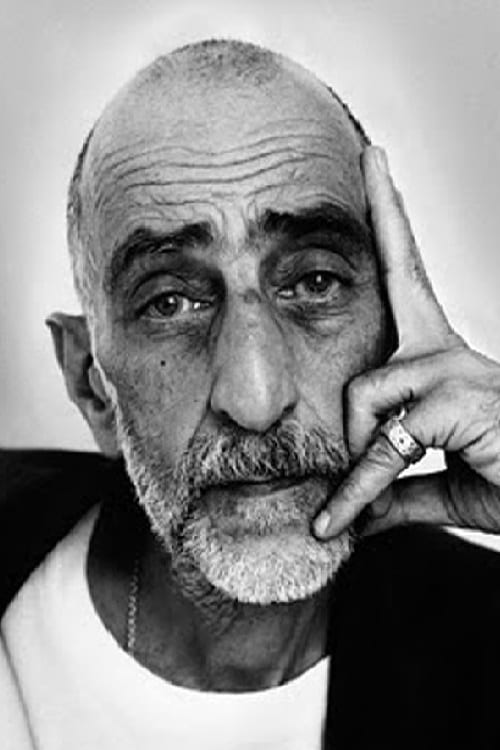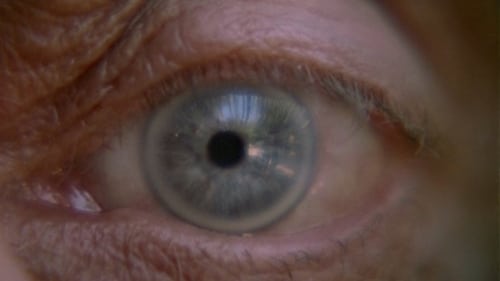
Screenplay
João Vuvu, lives alone in a house that requires regeneration but due to being alone he is unable to do the work. On his son's release from prison and João's ensuing deception triggers a series of somber events.

João Vuvu
João Vuvu, lives alone in a house that requires regeneration but due to being alone he is unable to do the work. On his son's release from prison and João's ensuing deception triggers a series of somber events.

Director
João Vuvu, lives alone in a house that requires regeneration but due to being alone he is unable to do the work. On his son's release from prison and João's ensuing deception triggers a series of somber events.
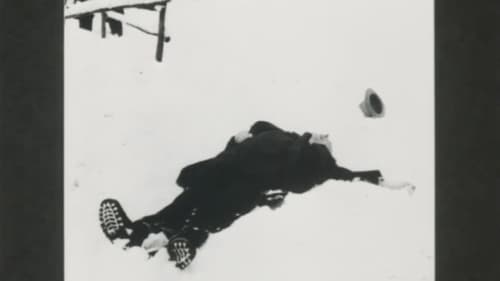
Monteiro moved far away from the visual opulence defined by his earlier films with his inspired adaptation of radical Swiss writer Robert Walser’s anti-fairy tale. Carefully restricting the image track, Monteiro maintains an almost totally black screen in order to focus instead on the voices of Snow White, the Prince, the Queen and the Hunter, engaged in an extended debate about love, free will and the events leading up to the fateful attempt on the maiden’s life. Despite its visual austerity, Snow White is haunted by the arresting images with which it begins – infamous black-and-white photographs of Walser lying dead in the snow after his heart attack outside a Swiss asylum at the age of seventy-eight, a strange realization of the “death of the author” so central to postmodern literary criticism.

Screenplay
Monteiro moved far away from the visual opulence defined by his earlier films with his inspired adaptation of radical Swiss writer Robert Walser’s anti-fairy tale. Carefully restricting the image track, Monteiro maintains an almost totally black screen in order to focus instead on the voices of Snow White, the Prince, the Queen and the Hunter, engaged in an extended debate about love, free will and the events leading up to the fateful attempt on the maiden’s life. Despite its visual austerity, Snow White is haunted by the arresting images with which it begins – infamous black-and-white photographs of Walser lying dead in the snow after his heart attack outside a Swiss asylum at the age of seventy-eight, a strange realization of the “death of the author” so central to postmodern literary criticism.

Director
Monteiro moved far away from the visual opulence defined by his earlier films with his inspired adaptation of radical Swiss writer Robert Walser’s anti-fairy tale. Carefully restricting the image track, Monteiro maintains an almost totally black screen in order to focus instead on the voices of Snow White, the Prince, the Queen and the Hunter, engaged in an extended debate about love, free will and the events leading up to the fateful attempt on the maiden’s life. Despite its visual austerity, Snow White is haunted by the arresting images with which it begins – infamous black-and-white photographs of Walser lying dead in the snow after his heart attack outside a Swiss asylum at the age of seventy-eight, a strange realization of the “death of the author” so central to postmodern literary criticism.
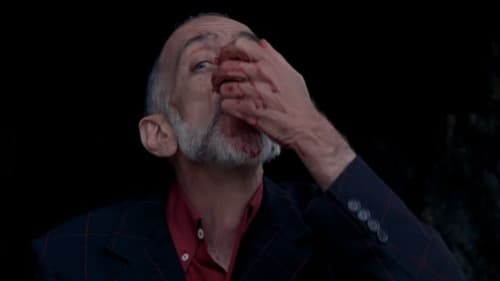
Screenplay
After receiving a visit from a messenger of God, João de Deus wins his buddy's girlfriend through a roll of the dice.

João de Deus
After receiving a visit from a messenger of God, João de Deus wins his buddy's girlfriend through a roll of the dice.

Director
After receiving a visit from a messenger of God, João de Deus wins his buddy's girlfriend through a roll of the dice.
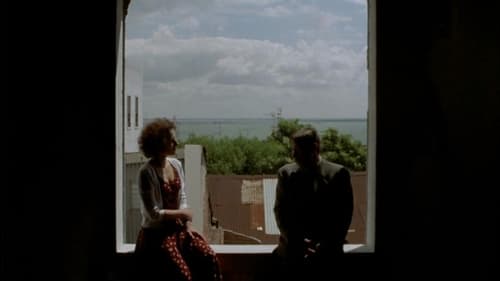
Screenplay
Two actors performing in Strindberg's "Inferno" as God and Lucifer, find themselves competing in real life as well. One of them, Henrique, has spiritual obsession with John Wayne and his way of walking. He and de Dieu, his fellow actor who plays Lucifer and also directs the Strindberg play, engage in a philosophical and spiritual tug-of-war, especially when they meet an author named God, who has plans for another drama to feature both actors.

Dieu, Max Monteiro
Two actors performing in Strindberg's "Inferno" as God and Lucifer, find themselves competing in real life as well. One of them, Henrique, has spiritual obsession with John Wayne and his way of walking. He and de Dieu, his fellow actor who plays Lucifer and also directs the Strindberg play, engage in a philosophical and spiritual tug-of-war, especially when they meet an author named God, who has plans for another drama to feature both actors.

Director
Two actors performing in Strindberg's "Inferno" as God and Lucifer, find themselves competing in real life as well. One of them, Henrique, has spiritual obsession with John Wayne and his way of walking. He and de Dieu, his fellow actor who plays Lucifer and also directs the Strindberg play, engage in a philosophical and spiritual tug-of-war, especially when they meet an author named God, who has plans for another drama to feature both actors.

Screenplay
Lord knows where João de Deus has been. He's come home wounded in the head. He's got a bit of the soundtrack to Johnny Guitar in his head. Strangely enough, there is no sign of the hole in his head. Day breaks over the city. Further strolls are in sight. It is said that Mr. Monteiro, the alter ego of João de Deus, occasionally goes out with Nicholas Ray. At least, they've been seen together.

João de Deus
Lord knows where João de Deus has been. He's come home wounded in the head. He's got a bit of the soundtrack to Johnny Guitar in his head. Strangely enough, there is no sign of the hole in his head. Day breaks over the city. Further strolls are in sight. It is said that Mr. Monteiro, the alter ego of João de Deus, occasionally goes out with Nicholas Ray. At least, they've been seen together.

Director
Lord knows where João de Deus has been. He's come home wounded in the head. He's got a bit of the soundtrack to Johnny Guitar in his head. Strangely enough, there is no sign of the hole in his head. Day breaks over the city. Further strolls are in sight. It is said that Mr. Monteiro, the alter ego of João de Deus, occasionally goes out with Nicholas Ray. At least, they've been seen together.
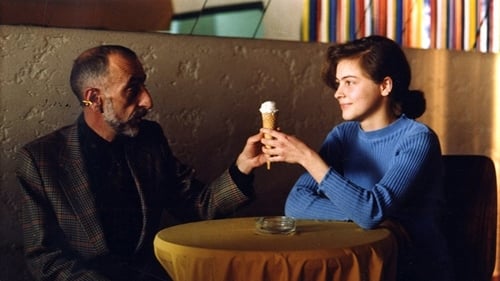
Screenplay
An ice-cream seller lusts after the female employees in his shop.

João de Deus
An ice-cream seller lusts after the female employees in his shop.

Director
An ice-cream seller lusts after the female employees in his shop.

Writer
One of the adventures of João de Deus.

João de Deus
One of the adventures of João de Deus.

Director
One of the adventures of João de Deus.

João de Deus receives a treat from a friend, unclogs his bathtub, and contemplates Lisbon from his window.

Director
João de Deus receives a treat from a friend, unclogs his bathtub, and contemplates Lisbon from his window.

Gilberto
Fernanda, António and Quim are travelling by train to a provincial Portuguese industrial city. Fernanda, a teacher, agrees to replace a pregnant colleague. António is returning to the home he was forced to flee long ago, accused of setting fire to the Duarte’s factory. At the station he bumps into Mariana who is in love of him. António is not welcome and is violently attacked by a group connected to Duarte ...
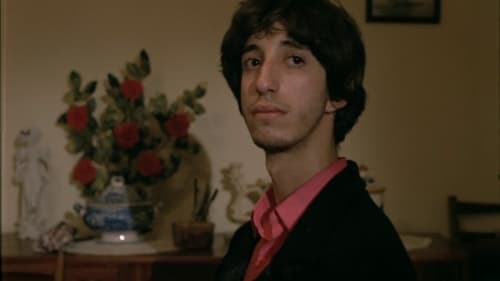
Man Outside Bathroom
Eloi, a paunchy middle-aged man, finds Samuel, a young sad sack, about to kill himself by plunging into the sea. Eloi takes Samuel under his wing, giving him a hot meal and bringing him to a seedy night club to introduce him to Esperança, who is said to be the most beautiful sex worker in Lisbon—and is also Eloi’s daughter.

Screenplay
Eloi, a paunchy middle-aged man, finds Samuel, a young sad sack, about to kill himself by plunging into the sea. Eloi takes Samuel under his wing, giving him a hot meal and bringing him to a seedy night club to introduce him to Esperança, who is said to be the most beautiful sex worker in Lisbon—and is also Eloi’s daughter.

Director
Eloi, a paunchy middle-aged man, finds Samuel, a young sad sack, about to kill himself by plunging into the sea. Eloi takes Samuel under his wing, giving him a hot meal and bringing him to a seedy night club to introduce him to Esperança, who is said to be the most beautiful sex worker in Lisbon—and is also Eloi’s daughter.

Screenplay
A satirical and delirious short which sums up the obsessions of João César Monteiro: film-making and… young women.

João Raposão
A satirical and delirious short which sums up the obsessions of João César Monteiro: film-making and… young women.

Director
A satirical and delirious short which sums up the obsessions of João César Monteiro: film-making and… young women.
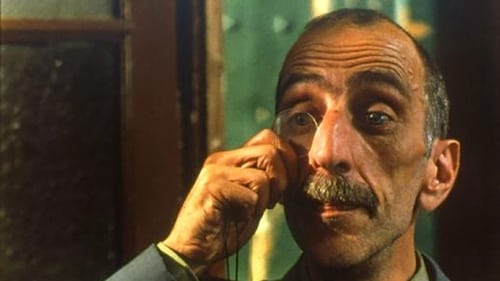
João de Deus
Lisbon, 1989. A middle-aged poor man, tormented by an illness, lives in a cheap room in a family boarding house, in the old section of the city's waterfront.

Screenplay
Lisbon, 1989. A middle-aged poor man, tormented by an illness, lives in a cheap room in a family boarding house, in the old section of the city's waterfront.

Director
Lisbon, 1989. A middle-aged poor man, tormented by an illness, lives in a cheap room in a family boarding house, in the old section of the city's waterfront.
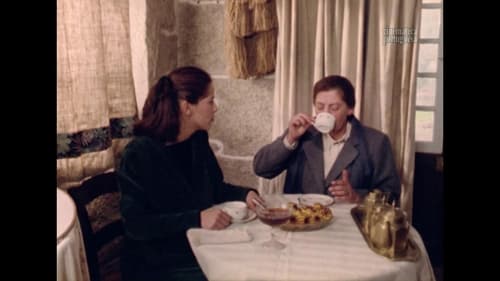
Screenplay
The young girl, Antónia Margarida Castelo Branco, is handed over by her mother to Brás Telles de Meneses because of the obscure interests between rural aristocratic families in the North. Brás is a ruined man, a bohemian with a reputation for violence and erratic behaviour. Antonia’s fortune is the first sacrifice made by the young wife. Fascinated by the man who humiliates and ill-treats her, she follows him in a pilgrimage to increasingly barren lands, to increasingly less hospitable houses.

Executive Producer
The young girl, Antónia Margarida Castelo Branco, is handed over by her mother to Brás Telles de Meneses because of the obscure interests between rural aristocratic families in the North. Brás is a ruined man, a bohemian with a reputation for violence and erratic behaviour. Antonia’s fortune is the first sacrifice made by the young wife. Fascinated by the man who humiliates and ill-treats her, she follows him in a pilgrimage to increasingly barren lands, to increasingly less hospitable houses.

Jogador de Poquer
The young girl, Antónia Margarida Castelo Branco, is handed over by her mother to Brás Telles de Meneses because of the obscure interests between rural aristocratic families in the North. Brás is a ruined man, a bohemian with a reputation for violence and erratic behaviour. Antonia’s fortune is the first sacrifice made by the young wife. Fascinated by the man who humiliates and ill-treats her, she follows him in a pilgrimage to increasingly barren lands, to increasingly less hospitable houses.

Cesar
An angry young man goes to Europe to find his father, a '60s radical turned doctor in exile.
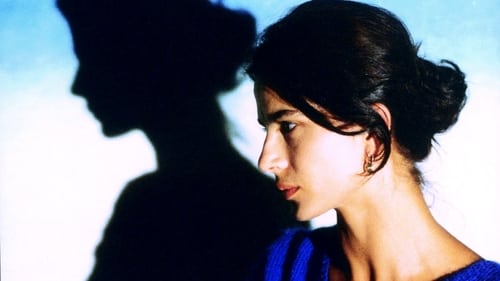
Producer
Laura Rossellini, a widow from Rome, vacations on the Algarve coast one hot summer. One day while sunbathing, she finds a wounded man named Robert drifting in the surf on a rubber raft. She takes him home, and, after he is revived, learns his story. As they talk, their mutual attraction grows, until a group of armed men suddenly arrive looking for Robert.

Screenplay
Laura Rossellini, a widow from Rome, vacations on the Algarve coast one hot summer. One day while sunbathing, she finds a wounded man named Robert drifting in the surf on a rubber raft. She takes him home, and, after he is revived, learns his story. As they talk, their mutual attraction grows, until a group of armed men suddenly arrive looking for Robert.

Stavroguine
Laura Rossellini, a widow from Rome, vacations on the Algarve coast one hot summer. One day while sunbathing, she finds a wounded man named Robert drifting in the surf on a rubber raft. She takes him home, and, after he is revived, learns his story. As they talk, their mutual attraction grows, until a group of armed men suddenly arrive looking for Robert.

Director
Laura Rossellini, a widow from Rome, vacations on the Algarve coast one hot summer. One day while sunbathing, she finds a wounded man named Robert drifting in the surf on a rubber raft. She takes him home, and, after he is revived, learns his story. As they talk, their mutual attraction grows, until a group of armed men suddenly arrive looking for Robert.
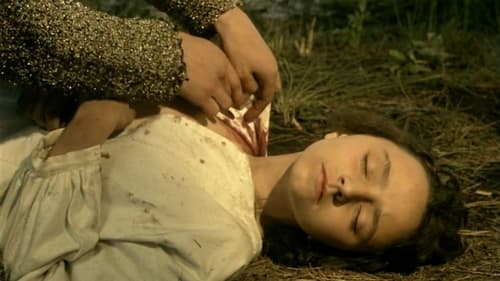
Editor
A bewitching combinatory adaptation of the Bluebeard tale and a 15th century Portuguese fable of a damsel who disguises herself as a knight errant.

Screenplay
A bewitching combinatory adaptation of the Bluebeard tale and a 15th century Portuguese fable of a damsel who disguises herself as a knight errant.

King of Portugal
A bewitching combinatory adaptation of the Bluebeard tale and a 15th century Portuguese fable of a damsel who disguises herself as a knight errant.

Dialogue
A bewitching combinatory adaptation of the Bluebeard tale and a 15th century Portuguese fable of a damsel who disguises herself as a knight errant.

Director
A bewitching combinatory adaptation of the Bluebeard tale and a 15th century Portuguese fable of a damsel who disguises herself as a knight errant.

The shady side of an Italian textile trade in northern Germany is the subject of this slow-paced but atmospheric drama featuring Alberto Sordi as Totonno, a low-level, petty criminal anxious to move up a somewhat crooked ladder. Rising to the rank of the "dons" -- Don Raffaele (Carmine Ippolito) or Don Gennaro (Pasquale Cenammo) -- is not an easy task, as Totonno is about to find out. In the meantime, Paula (Belinda Lee) provides a romantic distraction, and another would-be entrepreneur opts for the straight and narrow. This uneven feature offers some colorful performances but the sum is less convincing than its parts.
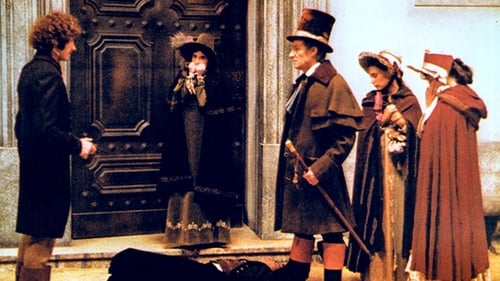
Degredado
A story about doomed love between two people from different worlds and the impact in their lives.

Editor
The Mother is one of Monteiro’s first essays on the universe of Portuguese oral culture, folktales and obscure colloquialisms. The plot revolves around a traditional tale about theft, greed, an ubiquitous mother, and the links between the worlds of the living and the dead.

Producer
The Mother is one of Monteiro’s first essays on the universe of Portuguese oral culture, folktales and obscure colloquialisms. The plot revolves around a traditional tale about theft, greed, an ubiquitous mother, and the links between the worlds of the living and the dead.

Writer
The Mother is one of Monteiro’s first essays on the universe of Portuguese oral culture, folktales and obscure colloquialisms. The plot revolves around a traditional tale about theft, greed, an ubiquitous mother, and the links between the worlds of the living and the dead.

Director
The Mother is one of Monteiro’s first essays on the universe of Portuguese oral culture, folktales and obscure colloquialisms. The plot revolves around a traditional tale about theft, greed, an ubiquitous mother, and the links between the worlds of the living and the dead.

Editor
In this highly theatrical TV production, Monteiro again draws on the world of folklore – and, more precisely, on the widespread sexual connotation of the pomegranate – to tell a tale of love, envy, treason and mistaken/double identities.

Producer
In this highly theatrical TV production, Monteiro again draws on the world of folklore – and, more precisely, on the widespread sexual connotation of the pomegranate – to tell a tale of love, envy, treason and mistaken/double identities.

Writer
In this highly theatrical TV production, Monteiro again draws on the world of folklore – and, more precisely, on the widespread sexual connotation of the pomegranate – to tell a tale of love, envy, treason and mistaken/double identities.

Director
In this highly theatrical TV production, Monteiro again draws on the world of folklore – and, more precisely, on the widespread sexual connotation of the pomegranate – to tell a tale of love, envy, treason and mistaken/double identities.

Producer
The film follows soldiers escape and wander, talk, and drift aimlessly.

Writer
The film follows soldiers escape and wander, talk, and drift aimlessly.

Director
The film follows soldiers escape and wander, talk, and drift aimlessly.
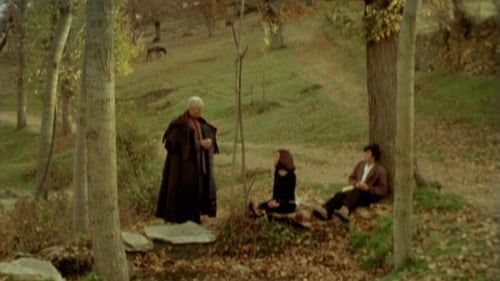
Editor
Parallel tales of young couples desperately escaping cruel false fathers, each couple on the run across different regions of the country and during increasingly contemporary time periods.

Screenplay
Parallel tales of young couples desperately escaping cruel false fathers, each couple on the run across different regions of the country and during increasingly contemporary time periods.

The Monk / The Boss of the Thieves
Parallel tales of young couples desperately escaping cruel false fathers, each couple on the run across different regions of the country and during increasingly contemporary time periods.

Director
Parallel tales of young couples desperately escaping cruel false fathers, each couple on the run across different regions of the country and during increasingly contemporary time periods.
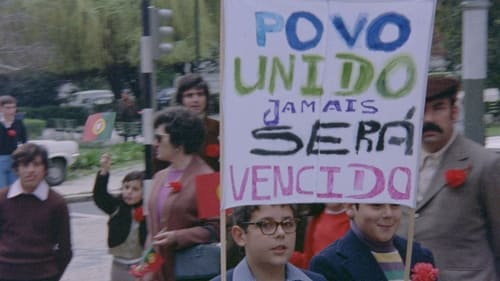
Director
Film directors with hand-held cameras went to the streets of Lisbon from April 25 to May 1, 1974, registering interviews and political events of the Portuguese "Carnations Revolution", as that period would be later known.

Idea
By cross-editing footage of Portuguese workers protesting against NATO forces and various movies, Monteiro shows how one 'sword' can confront the army.

Editor
By cross-editing footage of Portuguese workers protesting against NATO forces and various movies, Monteiro shows how one 'sword' can confront the army.

Director
By cross-editing footage of Portuguese workers protesting against NATO forces and various movies, Monteiro shows how one 'sword' can confront the army.

Unnamed
Artur is in Lisbon for his holidays, wonders aimlessly, and is picked up by Rui, a young man who is into marketing and advertising. Joana is in Lisbon for holidays, but also trying to escape from a mysterious, dark passion. Artur and Joana come together, find common roots in their rural background.

Writer
“I think my film represents above all the proof to those who want to understand and accept it, that poetry can’t be filmed, that it is useless to try” - João César Monteiro

Director
“I think my film represents above all the proof to those who want to understand and accept it, that poetry can’t be filmed, that it is useless to try” - João César Monteiro

Himself (uncredited)
Maria works in a German umbrella factory as the foreman of the production sector. João Lucas has given up on living a normal life and practically lives in bed, in the midst of green plants. His father expressly desired that his son film this eccentric daily life in 8 mm format. Maria’s wages are dilapidated to the last penny by this amateur, monstrous, family movie production.

Screenplay
Maria works in a German umbrella factory as the foreman of the production sector. João Lucas has given up on living a normal life and practically lives in bed, in the midst of green plants. His father expressly desired that his son film this eccentric daily life in 8 mm format. Maria’s wages are dilapidated to the last penny by this amateur, monstrous, family movie production.

Director
Maria works in a German umbrella factory as the foreman of the production sector. João Lucas has given up on living a normal life and practically lives in bed, in the midst of green plants. His father expressly desired that his son film this eccentric daily life in 8 mm format. Maria’s wages are dilapidated to the last penny by this amateur, monstrous, family movie production.

Editor
The tribulations of two friends who, in despair, start begging from door-to-door, and are given a bundle including, literally, a pair of deadman's shoes

Producer
The tribulations of two friends who, in despair, start begging from door-to-door, and are given a bundle including, literally, a pair of deadman's shoes

Screenplay
The tribulations of two friends who, in despair, start begging from door-to-door, and are given a bundle including, literally, a pair of deadman's shoes

(voice)
The tribulations of two friends who, in despair, start begging from door-to-door, and are given a bundle including, literally, a pair of deadman's shoes

Director
The tribulations of two friends who, in despair, start begging from door-to-door, and are given a bundle including, literally, a pair of deadman's shoes

